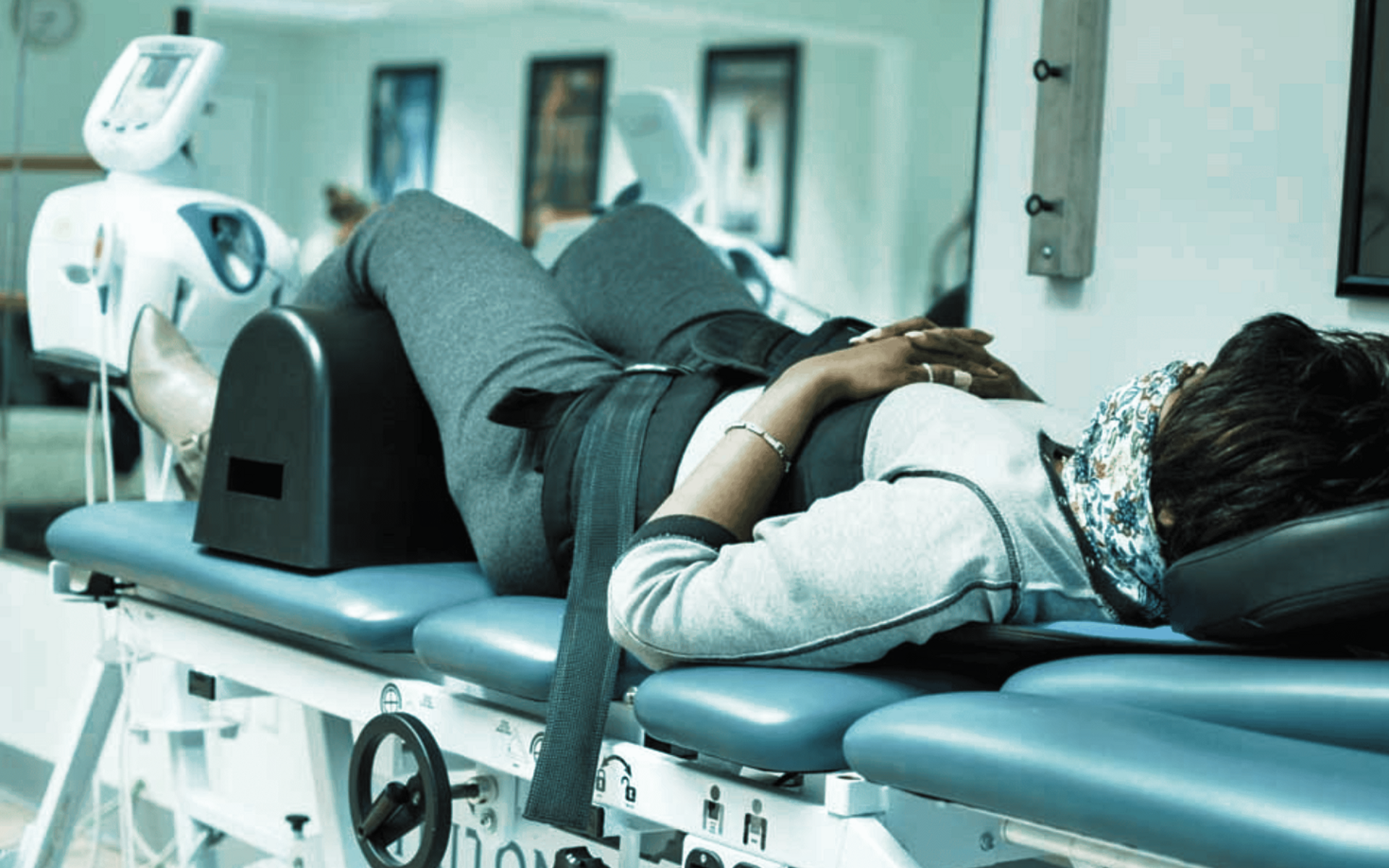
Spinal Decompression / Traction Therapy
At Pramukh Advance Physiotherapy Center, we specialize in non-surgical treatments to relieve back and neck pain. One of our most effective methods is Spinal Decompression Therapy, a gentle and advanced form of traction therapy designed to reduce pressure on the spine and help you regain a pain-free, active life.
What is Spinal Decompression Therapy?
Spinal Decompression Therapy is a non-invasive, drug-free technique used to relieve pressure on spinal discs and nerves. It works by gently stretching the spine in a controlled manner, creating space between the vertebrae, which helps rehydrate the discs, reduce nerve compression, and promote natural healing.
It’s an ideal option for individuals suffering from chronic spinal conditions, especially those looking to avoid surgery.
How Spinal Decompression Works
Using a specialized traction table or mechanical device, your spine is slowly and carefully stretched. This helps:
- Relieve pressure from herniated or bulging discs
- Reduce compression on spinal nerves
- Improve circulation to the spine and discs
- Promote healing of injured spinal structures
- Reduce pain, numbness, and tingling sensations
Sessions are safe, comfortable, and customized to each individual’s condition and tolerance.
Conditions Treated with Spinal Decompression Therapy
At Pramukh Advance Physiotherapy Center, Spinal Decompression / Traction Therapy is used to treat:
- Herniated or bulging discs
- Sciatica
- Degenerative disc disease
- Pinched nerves
- Facet joint syndrome
- Chronic lower back pain
- Neck pain and stiffness
- Spinal arthritis
- Postural disc compression
Free ask question?
Yes, when performed by a trained professional, it is a safe and non-invasive option for many spine-related conditions. It is FDA-cleared and widely used in physiotherapy and chiropractic clinics.
No, the therapy is generally comfortable and relaxing. Some patients may feel a gentle pulling sensation or mild soreness afterward, similar to a good stretch.
A typical session lasts 20 to 30 minutes. Patients often require multiple sessions, depending on their condition and response to treatment.
Treatment plans typically range from 10 to 20 sessions over several weeks. Your therapist will tailor the program based on your individual needs and progress.
Yes, most patients can resume light activities after each session. Your therapist may also recommend specific exercises to enhance recovery and maintain results.

